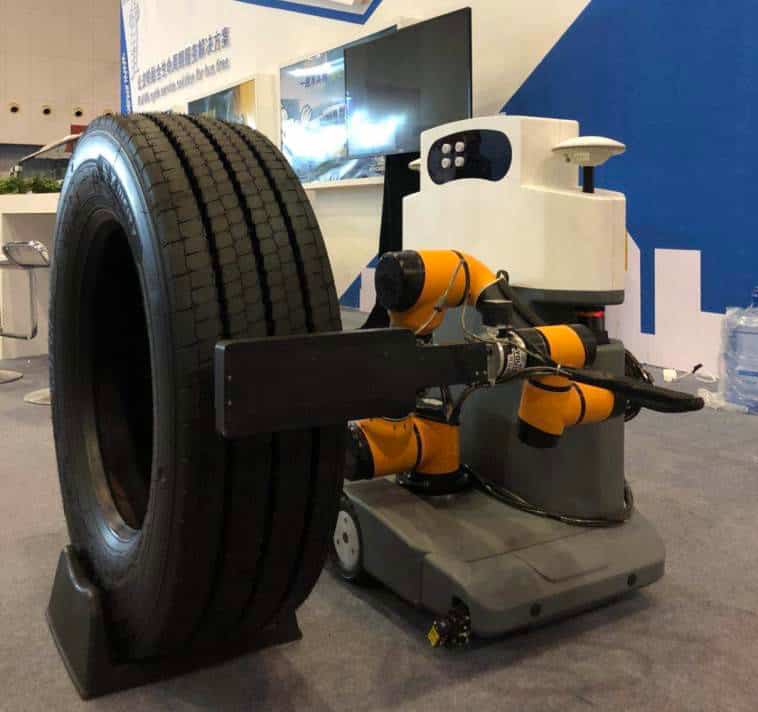
One of the interesting displays at the Movin’ On by Michelin Global Summit on sustainability taking place this week in Montreal is the Startup Village.
The Village features 15 early-stage startup companies offering their potential solutions to mobility. The Village started with over 200 companies that was whittled down to 40 and then the final 15 that were chosen to present at Movin’ On. As part of that, the founders were able to pitch their solutions to an audience and a selection of global mobility investors serving as judges as part of the Startup Challenge on Thursday.
Given just 3 minutes to make their pitch and an additional 2 minutes to answer judges’ questions, the 15 companies did their best to show why their solutions will change the market. The startups ranged from ride-sharing solutions, to boats, and even a few focused on the movement of freight.
One of the ride-sharing solutions, Eva, pitched is solution as different from Uber, Lyft and the other other apps out there through its Eva Token. Launched on the blockchain, the app uses the community to set prices for rides and utilizes the tokens to make payments, with Eva taking a 15% cut of each ride.
Trying to take advantage of an autonomous world, i4Drive has developed proprietary software that collects driver behavior information through vision and sensors and creates “deep insights” into driver behavior. Currently in over 30,000 vehicles worldwide, i4Drive uses that data to “train” autonomous vehicles on how they should react in certain situations, a critical machine learning component of making autonomous vehicles function correctly.
A couple of companies are working on last-mile solutions, including K-Royle from France. K-Royle has developed a “smart electric trailer” for bikes. Common in many parts of the world, including China and even New York City, bike couriers are increasingly being used to make final-mile e-commerce deliveries to avoid congestion and delays caused by larger cars and vans.
K-Royle seeks to make that job easier with an electric-powered trailer that easily plugs into any bike. The sensors and electric motors on the trailer monitor the speed of the bike and adjust the trailer’s speed accordingly, creating no additional effort on the bike rider’s part. The trailer can carry a payload up to 4,500 pounds. French Post and a local supermarket are currently testing the trailer.
Another last mile innovator is MellowCabs. Based in South Africa, the company is currently targeting developing countries with its solution, including India where the rickshaw is the primary means of transporting goods house to house.
MellowCab is a road-legal electric three-wheeled vehicle that comes in either a passenger version or a cargo version capable of carrying 880 pounds of payload. It utilizes regenerative braking to store energy and includes telematics for visibility and vehicle management. There are now 10 vehicles in testing with DHL and Uber Eats, both in India, as well as a couple of other companies.
Moving away from last-mile innovation is Vacus Tech, which is developing an indoor tracking solution. Vacus offers a $10 sensor that can be placed on assets or packages and will track those items to within 30 centimeters inside warehouses and manufacturing facilities. Each sensor has a range of 25 meters which requires a mesh network to be built inside larger buildings. It includes a 5-year battery life.
One of the more interesting startups is a Chinese company called Youibot Robotics. Youibot has developed ARIS – autonomous robotic intelligent system. Using Lidar, navigation and sensors, ARIS is a vehicle inspection robot currently in testing with Michelin.
ARIS can navigate around an entire yard of buses of trucks, inspecting each and every tire at night, including laser-based tread-depth inspection, and providing a report to maintenance as to which tires on which vehicles need attention.
The robotics company also has a version for studying dangerous chemicals and can be adapted to additional uses going forward.
Zeleros, winners of a SpaceX student competition in 2016, is building its version of a hyperloop. The company envisions passengers and cargo moving between cities on its system at speeds of up to 745 mph. The company hopes to build a test track in 2019 and launch by 2021.







